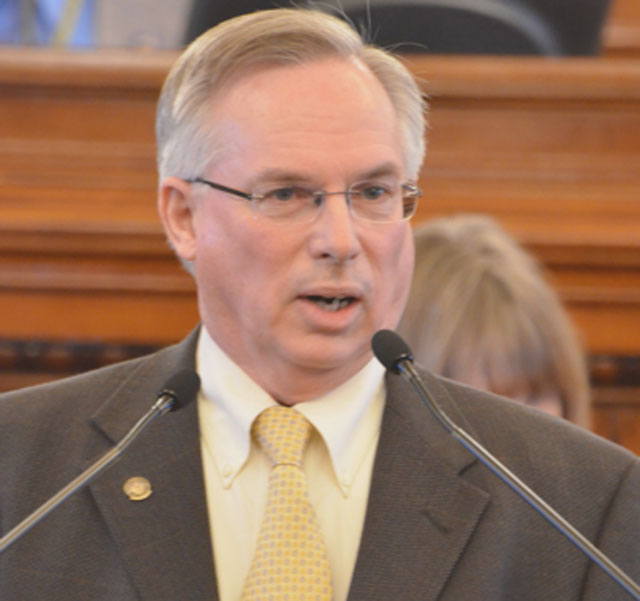
KDC
TOPEKA – David Toland, Acting Secretary for the Kansas Department of Commerce, delivered testimony to the House Rural Revitalization Committee earlier today, focusing on challenges and how the agency can better serve communities in rural parts of Kansas.
Topics included several challenges facing rural Kansans, including population loss, business closings, and even how one defines a community as “rural.”
“If you’re in Dighton, Scott City is a big town. If you’re in Scott City, Garden City is a big town,” Toland said. “So while it’s all rural, it’s not all the same.”
Toland explained several issues the Department of Commerce has had in attempting to interact with rural communities throughout Kansas, to include the difficulty in raising awareness of Commerce programs available to aid rural areas.
He noted that while these programs are dedicated to helping rural communities, and have been successful when utilized, Commerce must do more to clearly explain what’s available to communities they aim to help.
“We talk in acronyms that people don’t understand, we communicate through mediums that rural people may not be plugged into, and we’ve failed to respond to the reality that, in many communities, the only staff person – if they have any staff at all – is a city clerk who is overwhelmed with just trying to survive the day,” Toland said.
However, Secretary Toland expressed hope for Kansas’ rural communities. In his testimony, he noted the positive steps that are being taken by state government to address ongoing rural issues.
Proposals included agencies being more flexible to rural needs. He used the example of Commerce’s Rural Opportunity Zone employer match, which was added after counties unable to secure the funds necessary to match investments asked that employers using the program provide the funds instead.
Another example centered on the Kansas Rural Economic Development Alliance and its work with communities in Western Kansas. According to Toland, their system of creating alliances and relationships between rural communities is exactly the sort of model state agencies should adopt.
Secretary Toland also mentioned that state agencies should be listening more to those within the rural areas.
“Solutions are best when they come from rural communities,” Toland said. “Residents know best what can make their town better, and they have a better definition of what it means to prosper than some demographer or economist can come up with.”

Rep. Don Hineman (R-Dighton), chair of the Rural Revitalization Committee, was happy to hear the ideas Secretary Toland brought.
“His testimony made it clear that he shares my passion for rural Kansas,” said Hineman. “I look forward to working with him and the team at Commerce for the betterment of all Kansans.”
Even with the tough road ahead, Secretary Toland said there is reason to hope for the sustainability and prosperity of rural communities throughout the state.
“There is a new emphasis on rural in our statehouse, and that is good news for Kansans, regardless of where they live – rural, suburban, or urban,” Toland said. “Governor Kelly has made rural a priority, as has the legislature. This matters because what happens in rural Kansas matters to our entire state – to our economy, to our politics, and to our identity as Kansans.”
